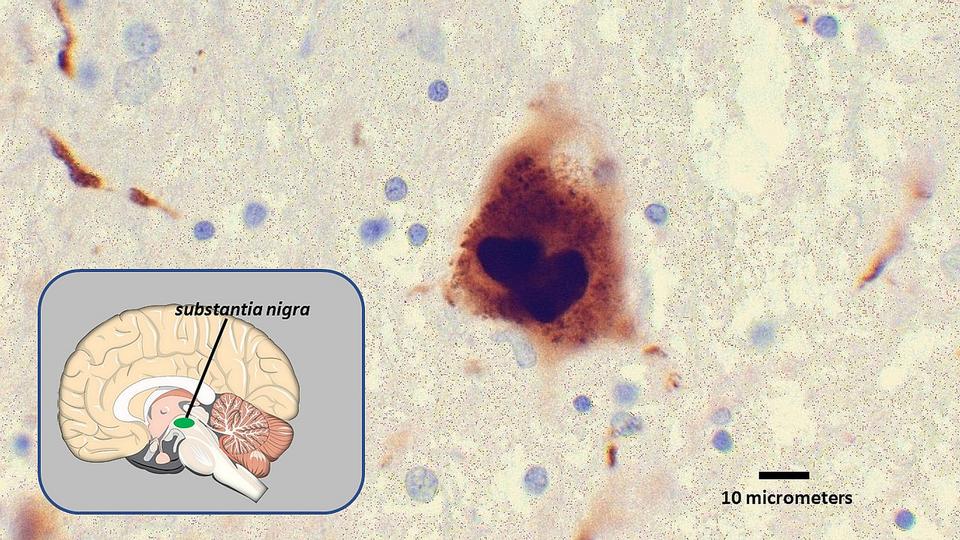Artificial enzyme could slow Parkinsons by targeting protein clumps
Date: 8.1.2021
Neurodegenerative diseases like Parkinson’s are characterized by clumps of misfolded proteins accumulating and killing brain cells.
 Now, researchers at Johns Hopkins have developed an artificial enzyme that may stop these clumps from spreading, providing a new potential treatment for Parkinson’s.
Now, researchers at Johns Hopkins have developed an artificial enzyme that may stop these clumps from spreading, providing a new potential treatment for Parkinson’s.
Alpha-synuclein is an abundant protein in the brain, but over time it can misfold and form clumps called Lewy bodies. If these clumps accumulate they can kill off neurons, resulting in problems with motor control, cognition and behavior associated with Parkinson’s disease.
In the new study, the Johns Hopkins researchers developed an artificial enzyme that could stop these Lewy bodies from spreading. The “nanozymes” are alloys of platinum and copper, designed to mimic catalase and superoxide dismutase, two natural enzymes in the body that target reactive oxygen species.
“Oxidative stress caused by reactive oxygen species is inescapable, and increases with age due to mechanistic slowdowns in processes such as protein degradation,” says Xiaobo Mao, senior author of the study. “This indicates the importance of antioxidants, because in Parkinson’s disease, roaming reactive oxygen species promote the spread of misfolded alpha-synuclein, leading to worse symptoms.”























